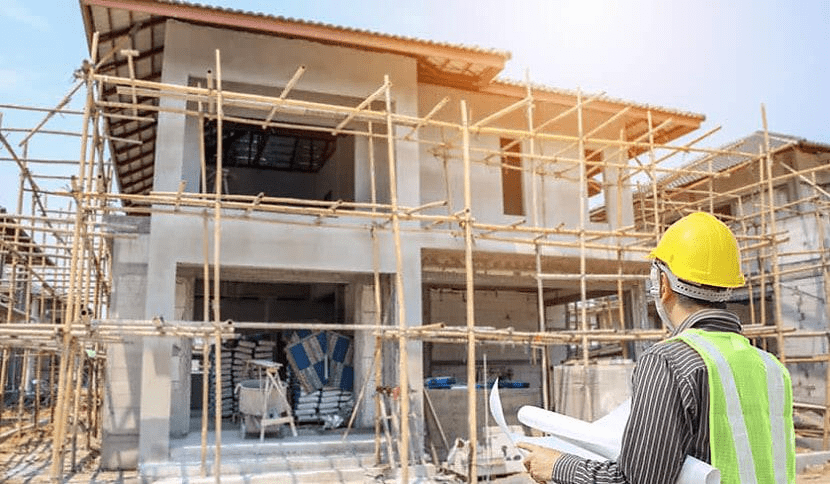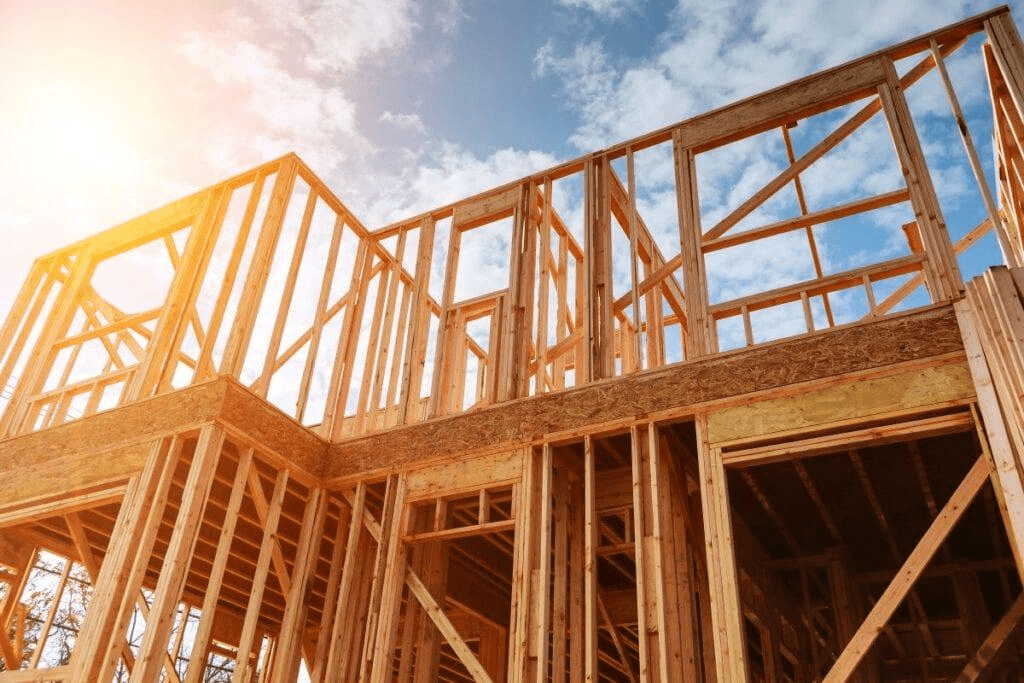12 Things to Consider When You Build a House in Australia

Building the house for the first time is both an exciting and overwhelming task. You might be unfamiliar with various things : from paperwork to construction, different issues can cause unexpected delays in building a new house or increase the final cost of project.
We have prepared a comprehensive guide and included 12 things to consider when building a house in Australia. This guide will make it easier to follow the home construction process.
Proper Preparation & Planning
Having a plan in advance might sound obvious, but it is pretty essential as it will save you time and money later on in your construction process. However, keep in mind that it's impossible to be too prepared when it comes to building a home.
You should first list the 'must haves' that are necessary, and you cannot compromise on. For example, raising the ceilings and constructing an alfresco may be 'must have' things for your dream home.
This list will come in handy when it comes time to adjust your budget and then cut what isn't necessary. As you begin the pre-construction process, make sure to share your list of "must haves" with your sales consultant and discuss it with them throughout the process.
Further, it is important to have some examples of what you're looking for on hand when meeting with your interior designer. Therefore, you should have different designs to guide your interior designer in a much better way to get your dream interior design.
Right Budgeting
If you're preparing a budget, your first step should determine how much you want to spend. Be confident in sharing your maxi mum budget with sales consultant of construction company.
Unlike what many people believe, sharing your budget won't increase the price. If you let builders know your budget upfront, this allows them to design homes that will fit your block and fit into your budget.
In addition to the budget you allocate for the building of your new home, you may need additional funds for items not included in a standard construction contract, including fencing, blinds, etc., that can cost anywhere between $10,000 and $40,000. Following are some of the costs that you must keep in your mind.
- Land price
- Government fees
- Construction cost
- Bank and legal fees
- Finishing costs

So, regardless of what you expect the project to cost, it will probably cost slightly more. Your builder might not also include many items in the estimate. For example, gas meters, NBN hookups, etc., are not likely to be included in your builder's estimate.
In some cases, there are also additional items not included in the estimate, such as landscaping and outdoor concrete. As a result, there is a possibility you will spend 15-25% more of your budget on finishing costs when compared to the original budget.
In addition, you'll need to take into account site preparation costs and planning application fees. Therefore, it is important to budget for unforeseen circumstances and unexpected expenses.
For instance, if the materials or fittings aren't up to your standards, you may want the option of changing them. Jere are a few rough estimates of how much each house may cost per square metre.
- Deluxe Customer Built houses may cost between $3,000 – $7,500+/sq m.
- Deluxe Project houses may cost between $1,200 – $2,700+/sq m.
- Custom Built houses may cost between $2000 – $3,700+/sq m.
- Basic project houses may cost between $700 – $880+/sq m.
Consider Resale Value
Considering resale value is important if you plan to sell your house in the future. To make money when you sell the house, you have to make sure that you don't spend more than its estimated value to turn it into a profit.
You may want to discuss with your builder what improvements you can make to your home to increase its value and what features are in demand right now. You'll save yourself a lot of money and money by upgrading your house while it's being built rather than later.
Factors like location, interest rates, property market performance may increase or decrease a home's resale value. Property location is one of the most important factors affecting the value of a property.
- Is the property located in the middle of the city?
- Is it situated in a desirable waterfront area?
- How close is the property to public transportation and shopping centers?

Property in these areas will be more expensive because most people want to live near their work and leisure activities.
There are also factors such as the unemployment rate or crime rate that can influence the value of a particular area. As a result of monetary policy changes by the Reserve Bank of Australia, the property's value may fluctuate.
The Reserve Bank of Australia may increase their official cash rate, and lenders across Australia may follow suit with their home loan interest rates, causing the monthly principal repayment on a mortgage to increase.
A major impact of this is the decrease in property affordability, which causes fewer competitors in the real estate market and lower house price levels. There is also the possibility that your property value will vary according to your local area's performance in the real estate market.
As a result of the lack of demand in the neighborhood and those listings being sold for much less than list prices, you can expect values to fall.
With NG Loans, you can also get a free property report to help you get valuable insights about the property.
Consider Climate
Choose the appropriate materials based on the climate when you are choosing materials. For example, wood floors are one of the most commonly used materials, but if you live in a cold climate, you have to install insulation to keep your home warm in the wintertime.
On the other hand, tiles are a great choice for those living in warm climates as they are cooler than carpets. Therefore, you should check the area's climate where you are constructing the house before installing anything.
Choosing the Right Builder
You have many choices before you when making a home building decision. One of the most critical choices to make is selecting the right builder. Your relationship with a builder will last for several months, regardless of who you choose.
So, it would be best to make the right decision while selecting the builder to avoid problems in the future. If you are looking for the right builder, here is what you should consider before making a decision:
- Previous work: Taking a closer look at some of the houses constructed by the builder in the past may prove helpful. Ensure the builder has a good reputation for excellence. Alternatively, you could check the resale data for a few homes the builder has previously built.
- Credentials: Before choosing your builder, ensure that they are properly licensed and insured.
- References: Take a look at the builder's previous work before you hire them. Are past clients satisfied with the results? Please do not hesitate to check the builder's references before signing the contract. Ensure that the builder you choose has no complaints against them. Further, it is also very important to look into the warranty and services.
- Design Style: See if the builder's work matches your design style by looking at their past work. A builder can be excellent at designing a certain home style, but if you want something outside their scope of experience, it would be wise to look elsewhere.
- Builder's Character: As stated above, your builder will be with you for a considerable length of time. So, it is important to be comfortable with your builder at this time. It is also essential for them to communicate effectively. When a builder is ineffective at communicating with you, they are likely ineffective at communicating with their contractors as well.
- Cost: If a builder is out of your price range, all of the above points are meaningless. Therefore, you should tell your budget and see if the builder agrees to work.
Know What You Agree To
Following are things that you should understand before signing the agreement.
Know What Construction Costs Include:
Make sure that you thoroughly read over the contract you have signed with your builder to ensure you understand all of its terms. If you plan to hire a contractor, you must know what the construction costs include and what they do not.
Timeframe & Payment Stages:
Be sure it contains a cooling-off period and specifies the construction time frame suitable for you. Everything won't run smoothly as expected because that's the nature of building sites.
However, an honest builder shouldn't have a problem working with you on a schedule. Especially if you need your project completed by a particular date, you should agree on a deadline before signing.
Do not forget to include some slack time to allow for delays caused by bad weather or other unforeseeable circumstances. You and the builder must agree to a timeline before signing off on a contract.
Also, ensure that it includes specific details about the plans, the warranty and the insurance. In addition, it is essential to look closely at the payment schedule in the contract.
Sign & Countersign:
Last but not least, it is a good idea to get a lawyer to look over the contract before you sign it. Please make sure you cross out any blank areas of the contract and ensure that the modifications you make are fully documented and agreed to by all parties.
Verify that the contract is witnessed and initialled by both parties. When both parties counter-sign, they agree that they are fine with the contract at the time of signing, and therefore can't claim ignorance or failure to take responsibility.
Try not to sign a contract if you do not feel 100 per cent confident that you have double-checked all of the details. If you ever find yourself in a dispute with your contract, you'll be glad you took the time to make sure everything works out well for you.
Find out If You Are Entitled to a Grant & Concession
If you are building your house in Australia for the first time, you might be eligible for the First Home Owner Grant. The First Home Buyers Grant was introduced in 2000 by the federal government to help offset the GST paid when a homeowner purchases their first home.
As part of the First Home Owners Grant, first-time homebuyers who purchase or build a new home for the first time are qualified for a lump-sum payment. The government also offered grants to existing homes, but only new homes are eligible since the terms changed.
It is why it is critical to stay up-to-date on the grant terms as they are subject to change. All states and territories administer their programs in the national scheme, and each state or territory has varying amounts available.
For example, if you get approved for the First Home Owners Grant in Queensland, you will receive $15,000, while in Western Australia, this amount is $10,000. The FHOG may range from $7,000 and goes up to $20,000.
Besides, the state or territory in which you live determines whether or not you're eligible for a First Home Owner Grant. If you qualify for this grant, you can significantly reduce your cost.
Organize Your Financing
If you consider building a house, you should consider finding a construction loan to easily help you achieve your goal. The construction home loan can also help you easily organize your financing.
Unlike a normal home loan, a construction loan doesn't release all its funding immediately. Instead, your lender will determine the amount you need for the construction project and make payments to your contractor in phases.
Estimate the loan amount you will be able to borrow for your home by using NG Loans borrowing power calculator. You can also use NG Loans monthly repayment calculator to calculate how much you would have to repay.
You will receive your payments at the end of each phase of the construction of your house. The number of deposit lenders required can also differ between construction loans. The lender might require a deposit of at least 20% for construction loans because construction loans are typically riskier.
Prepare a comprehensive plan before you seek out financing to know exactly what you will do. The assumption of the house's value during construction is part of your lender's construction loan application.
Therefore, you'll need a detailed construction plan that includes all costs. Don't forget to get your property insurance at the right time. Listed below are a few things you should consider before applying for a home loan.
- Establish a Budget: If you want to buy a home, you must have good money management skills because houses have many costs, including council rates, maintenance, etc. Therefore, it is important to know how to budget before starting any new venture.
- Find Your Financial Situation: Find out your credit score to determine your financial situation. Have you ever been able to pay off your loans in the past? Are you still in debt? Have you always paid your bills? Your credit history will factor into your lender's decision when applying for a home loan.
- Learn Your Limit: It's very tempting to buy an expensive house in an upscale area, but it's essential to consider how much you can comfortably afford currently and in the future.
How Can NG Loans Help in In Organizing Your Financing & Getting Home Construction Loan?

Most Australians do not know how to apply and organize their construction loan. If you are among those people, do not worry because experts at NG Loans can help you organize the loan without any hassle. So, you can contact NG Loans and get your construction loan easily and quickly.
Those wanting to build their dream home can turn to NG Loans for low deposit loans for construction finance. The team at NG Loans are specialized in construction loans. It means you get the following benefits when you use NG Loans.
- The experienced team at NG Loans offers the most honest and ethical advice to help you get the desired outcome.
- NG Loan offers an in-depth understanding and knowledge of the lending policies and guidelines for several lenders and banks.
- You can focus on your home while still being confident as you're getting the best possible financing through NG Loans.
Communicate Regularly
You need to contact frequently with your builder during the construction process and ask for regular updates on how the construction progresses. You can also take pictures regularly during the project to keep track of problems.
Don't be afraid to push back if your builder or contractor tells you that it is not possible. Although it may be more expensive, odds are, if you put in enough effort, you will be able to achieve your goal.
When it comes to details that matter to you, you should not be afraid to speak up. Since you're going to live in the house when it's completed, you should be at ease with the process.
Make Savings
If you are building a house, it will be a major investment, and you will probably find that you're paying more in the end than you originally expected. It is possible to save money by simply being creative. If you are having your home built, make sure you shop around for the most reasonable price for the fittings and fixtures, as well as the materials.
Ensure to get several quotations for all items you will require during the building process. It is also possible to save money by selecting a site where preparation is easier at the very beginning of the process.
If you end up having to haul away dirt, remove rocks or clear brush, it can end up being very expensive. If you choose a land lot that doesn't require much preparation before you begin building, you will be able to reduce these costs considerably.
Have a Third-Party Inspect
You should have an independent consultant look over your construction project at every stage. It will put your mind at ease that your home's construction materials and practices comply with all applicable laws and regulations. During each of the following stages, inspections are recommended:
- Foundations & footings: The inspection team will examine the drains, slabs and foundations during this process.
- Frames: It will be necessary for this inspection to verify that all of the framings for the house walls are completely straight and level. In addition to this, it will also check whether the dimensions outlined in the building plans correspond with the dimensions of the building frame. It will also include checking the dimensions of the rooms, the height of the ceilings, and the roofs.
- Lock up: During this stage of construction, the house is complete, meaning that the windows and the doors are all installed. This inspection will include checking the frames of the windows and doors, the flashing around the windows etc.
- Pre-handover: In addition to paint and tiling, the inspector will inspect the installation of all final items. The inspector will also ensure that the construction site has been kept clean.
Understand Your Legal Rights
As long as you have planned your building process well, developed your budget properly, and partnered with the appropriate builder and lender throughout the building process, chances are you won't face major issues. Nevertheless, you can file a complaint against builders through various channels if the worst happens.
You can complain to the Housing Industry Association if your builder is its member. Each of the organizations handles complaints in its way. Also, the building complaints process varies from state to state and territory to territory.
If you plan to hire a builder, ensure that the builder has a valid contractor licence, in addition to any subcontractors. Further, most Australians probably didn't know that the law says that any building work costing over $12,000 must have a written contract.
There needs to be a clear, written contract stating the agreed terms, the builder's name and his license that the builder and you both have signed. If you are given any contract to sign, make sure that you get legal advice before you sign it to make sure that you understand what it means and that it will protect you.
Do you need to change the contract after it has been signed? There is nothing to worry about. First of all, confirm that the change has been agreed upon between you and the builder. It is important to record the changes as part of the contract with the builder in writing.
Further, building contractors often ask for progress payments during their work. Generally, consumers shouldn't pay in advance. A contract should clearly outline the stages and the work that needs to be done by each stage since this will determine your payment once you complete the stage.


